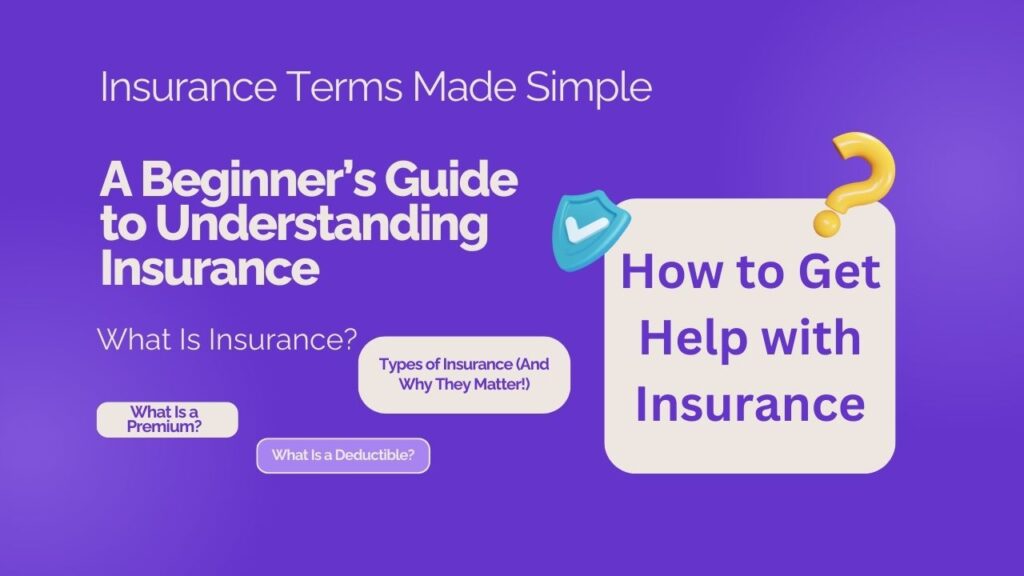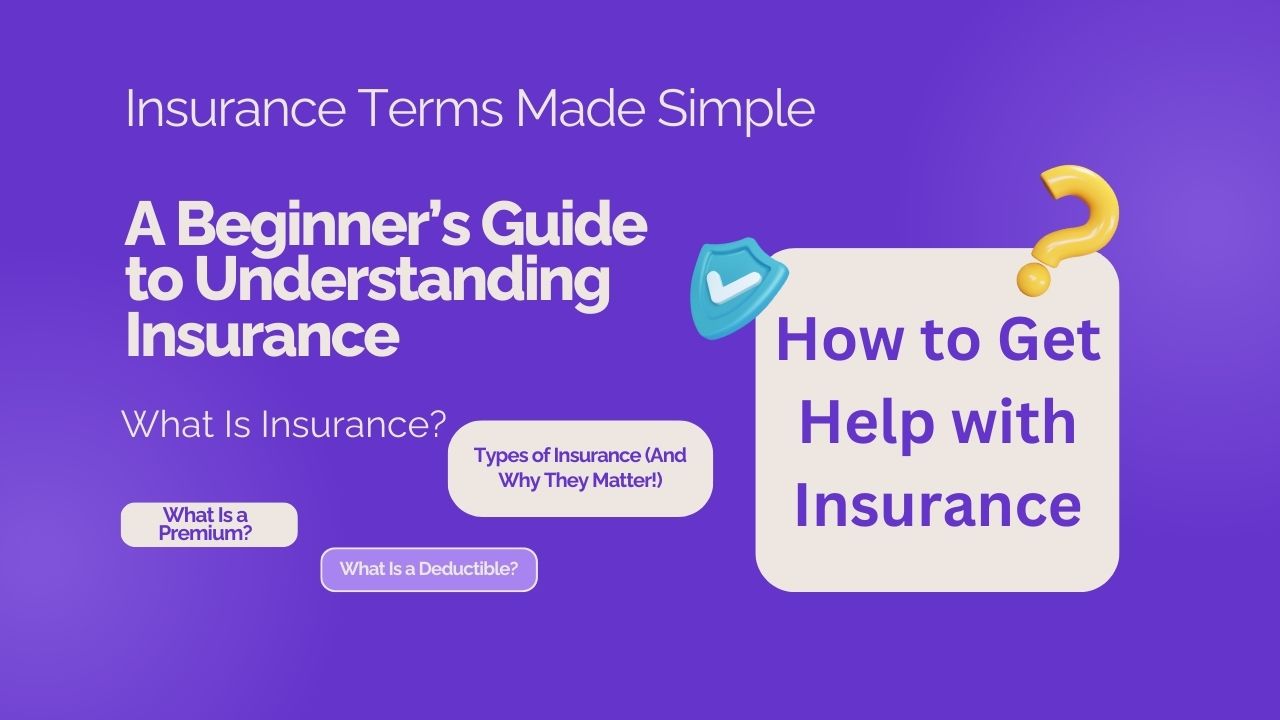Insurance Terms Made Simple: A Beginner’s Guide to Understanding Insurance

Have you ever overheard adults talking about insurance and felt completely lost? Words like “premium,” “deductible,”or “policy” can sound confusing, but don’t worry—you’re not alone!
Insurance may seem complicated, but once you understand the basics, it’s like learning a new language. This guide will break down the most common insurance terms in a way that makes sense. By the end, you’ll be speaking “insurance” like a pro!
What Is Insurance? A Simple Explanation
Think of insurance as a safety net. When unexpected things happen—like a car accident, a broken phone, or even damage to your home—insurance helps pay for repairs or replacements. It’s like having a superhero friend who steps in to cover part of the cost when something goes wrong!
How Does Insurance Work?
Here’s a simple way to think about it:
- You (or your family) pay a small amount of money every month to an insurance company. This is called a premium (we’ll explain this in a moment!).
- If something bad happens—like a car accident or a broken laptop—the insurance company helps pay for the costof fixing or replacing it.
- This helps families avoid huge, unexpected expenses all at once.
Sounds helpful, right? Now, let’s learn some important insurance words so you can understand how it all works!
Important Insurance Words You Should Know
Understanding key insurance terms helps you and your family make smarter decisions about protecting your home, car, and belongings.
1. What Is a Premium?
A premium is the amount of money you pay (usually every month) to keep your insurance active. Think of it like a membership fee for staying in the “safety net club.”
💡 Example: Imagine you have a subscription to your favorite streaming service. You pay every month to keep watching your favorite shows. A premium works the same way—you pay a little each month so that insurance will help you when you need it!
2. What Is a Deductible?
A deductible is the amount of money you have to pay first before insurance helps cover the rest.
💡 Example: Let’s say you break your gaming console, and it costs $500 to fix. If your insurance deductible is $100, that means you pay $100, and the insurance company pays the remaining $400.
Think of it as splitting the cost—but insurance covers the bigger part!
3. What Is a Claim?
A claim is a request for help from your insurance company when something happens.
💡 Example: If a tree falls on your car, you or your family would file a claim with your auto insurance company to help pay for repairs.
4. What Is a Policy?
An insurance policy is like a rulebook that explains what is covered and what isn’t. It’s a written contract between you and the insurance company.
💡 Example: Your car insurance policy might say that it covers accidents, but not regular wear and tear (like needing new tires).
5. What Is Liability?
Liability means who is responsible for an accident or damage. Insurance helps cover liability costs if you’re responsible for causing damage to someone else’s property.
💡 Example: If you accidentally break a window while playing baseball, liability insurance could help pay for the repairs.
Types of Insurance (And Why They Matter!)
Just like different video games have different rules, different things need different types of insurance!
🏠 Home Insurance: Protecting Your House and Belongings
What it does:
- Covers damage from things like fires, storms, or theft.
- Helps pay for repairs or replacements if something happens to your home or the items inside.
💡 Example: If a big storm knocks down part of your roof, home insurance helps pay for the repairs!
🚗 Auto Insurance: Keeping Your Car Safe
What it does:
- Helps pay for car repairs after an accident.
- Covers damage from things like hail, theft, or falling trees.
💡 Example: If you’re in a car accident and the repairs cost $3,000, your auto insurance will help cover most of it(after you pay your deductible).
👨⚕️ Health Insurance: Taking Care of You
What it does:
- Helps pay for doctor visits, medicine, and hospital bills.
- Reduces the cost of medical treatments.
💡 Example: If you break your arm while skateboarding, health insurance helps cover the doctor’s visit and X-rays!
🐶 Pet Insurance: Helping Your Furry Friend
What it does:
- Covers vet bills if your pet gets sick or injured.
- Helps pay for surgeries and medications for your pet.
💡 Example: If your dog eats something bad and needs surgery, pet insurance helps cover the cost.
Why Learning Insurance Terms Matters
Understanding insurance is like learning a new language. At first, it seems tricky, but the more you practice, the easier it gets!
Knowing these words can help you:
✅ Make smarter choices about protecting your belongings.
✅ Help your family understand different types of insurance.
✅ Be prepared for unexpected events, like car accidents or home damage.
What to Do Next: How to Get Help with Insurance
Even after learning these words, insurance can still be confusing—and that’s okay! That’s why talking to the experts at Vargas & Vargas Insurance is important!





























